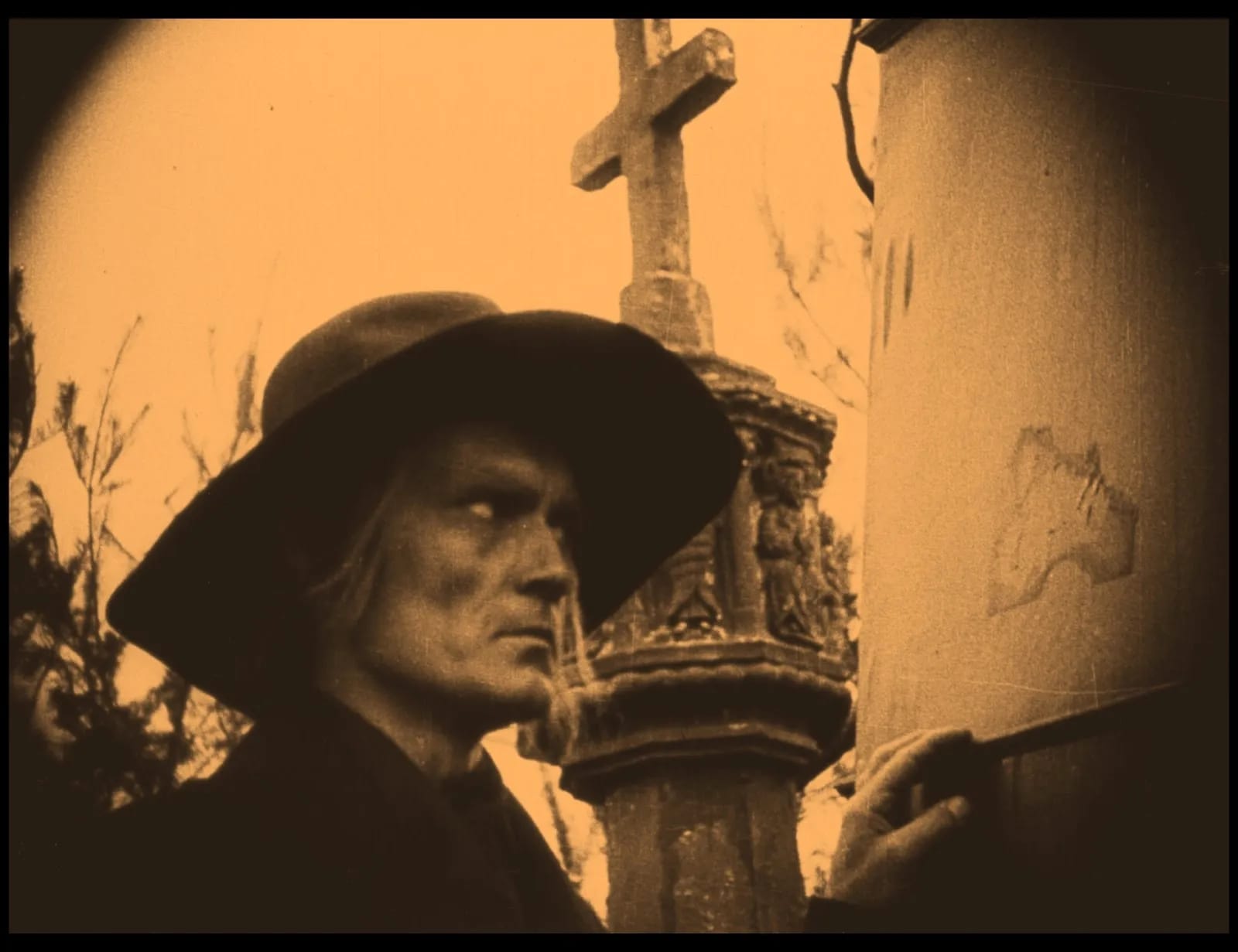Fritz on Fridays: Death’s Domain in ‘Destiny’ with Daniel Gorman
A conversation about what sets Destiny apart, the technological advances of the early silent-film years, Langian metanarratives related to destiny and much more.

On the first Friday of every month, this column by critic Joshua Polanski will feature a short review or essay on a film directed by Fritz Lang (1890-1976), the great Austrian “Master of Darkness.” Occasionally (but not too occasionally), Fritz on Fridays will also feature interviews and conversations with relevant critics, scholars and filmmakers about Lang’s influence and filmography. As a special installment of Fritz on Fridays, this interview is being published mid-month.
Destiny (1921) is the earliest of Fritz Lang’s films to reach hallowed canonical grounds, and for good reason. The works that came before it lacked the formal and thematic ambition Lang finally embraces with his adaptation of a Hindu myth. Some of the best production design in film history takes shape here, as well as some incredible early cinematography.
Lil Dagover plays the wife of “The Loving Couple,” whose partner dies early in the film. She spends the remainder of the time negotiating with Death (Bernhard Goetzke) to bring back her lost lover. Death gives her three opportunities to save one of the lives of three strangers, whom he selects across time and geography, with love. If she can do so, he promises to return her husband to mortality.
For this column, I corresponded with the Chicago-based Daniel Gorman, one of my colleagues at In Review Online, about what sets Destiny apart, the technological advances of the early silent-film years, Langian metanarratives related to destiny and much more. Gorman has, I believe, logged more Lang films on Letterboxd than any other person I follow, and that should come as no surprise to those who have read his work long enough. Lang’s name is a recurring character in Gorman’s reviews because of the influence the director had on his formative cinephilia years. He even brought Lang up in his review of Hundreds of Beavers!
The following interview has been condensed and edited for clarity.
Daniel Gorman is a long-time staff writer for In Review Online and a member of the Chicago Film Critics Association.
Joshua Polanski: Let’s start with the obvious starting place: When did you first see Destiny, and how has it held up with the natural evolution of your taste as both a critic and cinephile through the years?
Daniel Gorman: Well, first I’ll just say I’m very pleased you invited me to have this discussion with you. Fritz Lang is very important to me, and I get the sense (just anecdotally, I suppose) that he’s not as discussed these days as he once was. For me, Lang is inextricably tied up with my cinephilia.
I came to him almost backwards; moving to Chicago in 1998 gave me access to a kind of golden age of the Chicago Reader alt-weekly. Jonathan Rosenbaum was churning out great essays on a weekly basis, and the paper also ran reviews from Fred Camper and old blurbs from Dave Kehr. [They were] three different kinds of auteurist criticism with different points of emphasis. But Rosenbaum was really big on Jean-Luc Godard and Jacques Rivette and Serge Daney, none of whom I was very familiar with at that age but whom I quickly became enamored of. Of course, Lang appears in Godard’s Contempt, and both Rivette and Daney spoke frequently about Lang’s Moonfleet, which became a kind of cult-like fixation for me. (Bear in mind it was virtually impossible to see Moonfleet back in 1998.) So, on the one hand, Lang was being taught in school via his massive silent films — Metropolis was huge, of course, but also Die Nibelungen and Woman in the Moon with its famous invention of the “countdown.” An easy clip to show out of context to young students!
I had all these different ideas of Lang kind of floating around my head, and it took some time to put it all together — the silent era, of course, but also M and Fury, then the noirs and eventually the lesser-known Westerns, etc. Back to your original question: I don’t remember exactly the first time I saw Destiny. I know it was a film print, and it played at the old Film Center when it was still on Columbus Drive, so it must’ve been before 2001. I knew it was a rare chance to see a silent film on film, and I definitely remember how overwhelming an experience it was.
JP: I’m very happy to feature you and your thoughts on Lang as part of Fritz on Fridays. You’re a thoughtful critic, one who has made an impact on my own writing and thinking about the medium. I’m mostly using this as an excuse to chat with you about an important filmmaker to us both.
I’m jealous of your lengthy relationship with Lang. I also think your anecdotal observation is at least partially correct; I had very few meaningful engagements with Lang in an academic setting until grad school (where I studied theology, not film, and a class I took on modern theology used Metropolis as a cultural text). I’ve also never seen any of his films on anything bigger than a 50-inch TV.
Maybe a good place to start with Destiny, in particular, is placing it within his filmography. It’s probably his first great film. And, to me, it’s remarkable that he is coming only a few years off of the rather poor Spider films (which, to my regret, were not about giant spiders like I had hoped.) Would you agree that Destiny is the first earnest glimpse at the great director?
Continue reading at the Midwest Film Journal.